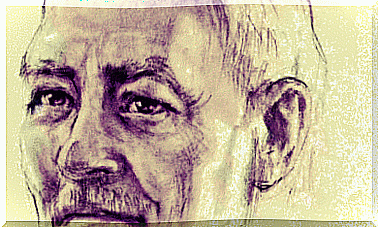Selective Abstraction: Maximizing The Negative And Minimizing The Positive

Selective abstraction is a type of fallacy where you feel as if the negative in your life outweighs the positive. This fallacy is not committed consciously, it just becomes an automatic way of processing reality. Chances are that you have inherited this way of thinking from your upbringing, and that you have never consciously considered it.
If you live in an environment where the negative aspects of people and situations are constantly emphasized, you get used to the fact that this way of analyzing is the right way. As a result, this perspective will gradually take root in your brain, and you will not be able to spot the errors in your own reasoning.
You may even have some justifications for this way of thinking in mind. You may think that focusing only on the negative reduces the risk of being disappointed or frustrated when you can’t achieve certain goals or when you suddenly discover mistakes or emptiness and shortcomings in other people. Or maybe you’re convinced that looking only at the negative is a more analytical and critical stance to adopt, because the good things don’t have to change, but instead the bad things need to be improved.
Selective abstraction in everyday life
The people who perpetuate this fallacy often get quite angry inside. It’s quite normal for these people to have a whole catalog of things that they can’t stand or get very angry about. They don’t take it when others are late, they tolerate lying much less, and conformism and trends cause them to explode. At the same time, they are outraged or even feel attacked when others make a mistake.

Selective abstraction is not only aimed at the outside world. It is also, above all, focused on itself. As a result, these people are practically ‘putting together an entire movie in their heads’. In other words, people who tend to come up with a terrible outcome for every situation, or at least one that is negative for them.
Let’s take an example: a boy is a little late for his date with his girlfriend. She immediately panics and thinks that this might be his way of letting her know that he is no longer interested in her.
As a result, she thinks that he is an inconsiderate and selfish man who does not love her, as he has made it clear to her several times in her imagination. When the boy finally shows up, she throws all these accusations at his head, not realizing that he was late because of a car accident, something that was not his fault or intention at all.
Another example, in this case at work, is the example of someone who carefully prepared a presentation. As he expected, the presentation was a success. However, one of the attendees has a small point of criticism. This makes the person who gave the presentation not feel good about it at all, and all he stores in his memory is that small critique, which he will then relive over and over again in his mind over the next few days. head.
He goes home with the idea that the others present probably had all sorts of comments as well, but that they simply hadn’t spoken them out loud. He begins to think that all his efforts were in vain, because the presentation did not meet his expectations, which were based on the condition of meeting the expectations of the others.
Countering selective abstraction
Always looking at life from a selective abstraction will inevitably make you angry and frustrated. It does not enrich your life in any way, nor is it a thought process that you should cultivate. Quite the contrary, it would be wise to completely erase this automatic thought pattern so that you can live a more complete life. But, how do you do this?

As with any kind of automatic behavior, you must first become aware of it. Ask yourself this question: How much do I value the negative aspects of people or situations? Do I somehow think that negativity deserves more attention than positive things?
Once you see that there is indeed selective abstraction in your way of thinking, it is then important to conduct a process of self-observation to see if this pattern occurs in every situation, or if it is only activated under certain circumstances. This attitude of paying close attention to your own behavior will enable you to figure out how to undo this fallacy. You will probably find that this pattern is generated in circumstances where you feel insecure.
When moments like this occur, it can help to say to yourself, “Hey, you’re only seeing the negative again.” “You’re ready to take the next step. Why don’t you try looking at the good, the positive?’
Try to make this a permanent exercise, almost an automatic way of thinking. Whenever you judge someone or something in a negative way, try to counter this judgment with a positive one. “I have found this shortcoming, so now I must look for a virtue.” Thus, you will be well on your way to breaking that terrible pattern of selective abstraction.










